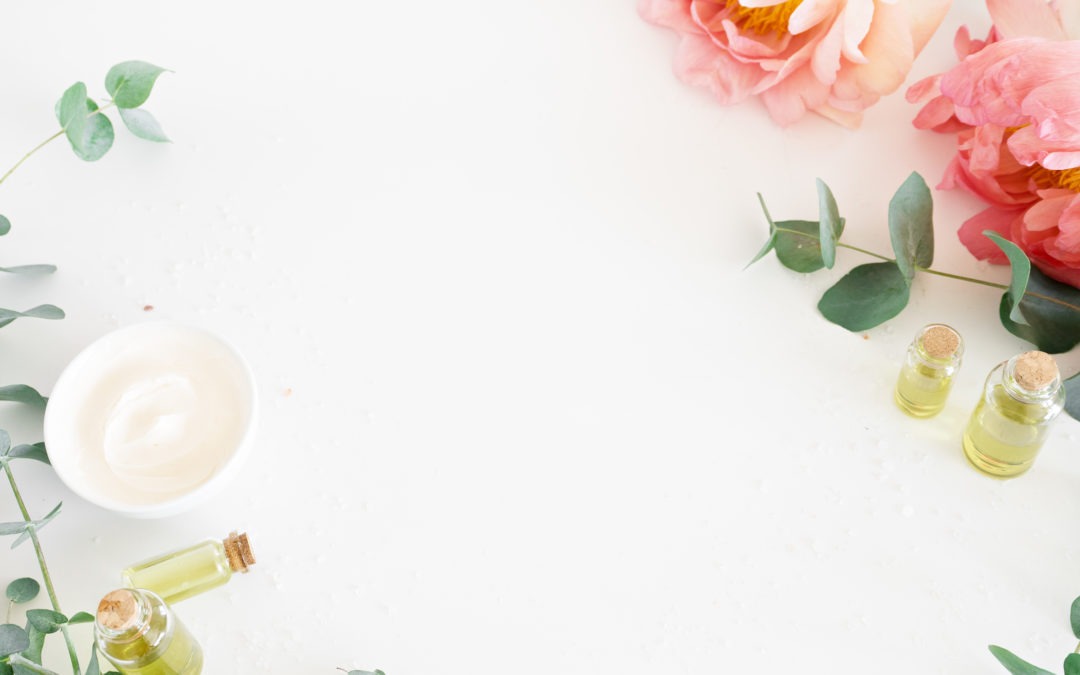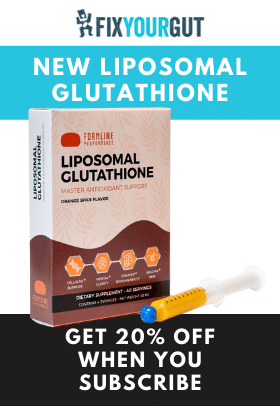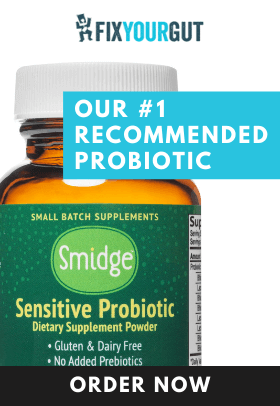I receive many E-mails asking me what some good topical products to help prevent infections, reduce skin dysbiosis, and to soothe wounds and burns. My child has a cut on their arm, what should I put on it instead of Neosporin? Do natural products work as well to keep the wound from becoming infected? Since it is summer in the northern hemisphere, more people are going outside and being more active which can lead to injuries. Our skin is the largest organ and for many people is taken for granted. Skin protects our organ systems and also has its own less studied microbiome. So, what can be used to help naturally prevent infections on your skin and improve the skin microbiome if needed.
Infection Prevention and Reduction
Naturally, we have many different options available to prevent, relieve skin infections, and improve wound healing. Some of the following recommended options will be a broader spectrum and would be harsher on the skin microbiome like Alliderm and colloidal silver which should be used to prevent infections in more complex wounds and burns. Organic virgin coconut oil and thieves oil salve should be used in order to avoid infections in minor wounds and burns and both work very well against yeast dysbiosis including Candida and tinea versicolor. Manuka honey works well in tandem with the probiotic microbiome in cuts, abrasions, and severe burns and it can be purchased medical grade.
For example, if I get a minor cut, I rub organic virgin coconut oil on it to help protect, reduce the chance of infection, and accelerate healing. If I get a deeper cut or burn, I might use some manuka honey with a bandage and change it two to three times daily. Rarely, I use colloidal silver or Alliderm for deep lacerations. I used Alliderm once on a wound that required stitches, to prevent infection, and it worked quite well. Silver and manuka honey are used in hospitals for skin infections, wounds, and burns, and you can find bandages in pharmacies that contain manuka honey and silver nitrate to prevent infections. Finally, with any of the below recommendations if it is your first time using them, put a minimal amount on uninjured skin first to see if you have an allergic reaction. If no allergic reaction occurs in ten minutes apply the natural antimicrobial agent to the wound.
Organic Extra Virgin Coconut Oil
Uses: Antimicrobial and helps protect and relieve skin injuries and burns.
Brand: Tropical Traditions Gold Label virgin coconut oil
Side effects: RARE: systemic allergic reaction
Coconut is a member of the palm family and is grown and harvested in tropical regions. Coconut is a stone fruit, and humans eat the meat of the fruit. Coconuts also contain a lot of water within the fruit. The meat is rich in saturated fats, mainly lauric, myristic, capric, and caprylic acids. Coconut meat is what is used to produce coconut oil. Lauric acid (a fatty acid also found in breast milk) is converted into monolaurin in the human body that provides strong anti-bacterial, anti-viral, and anti-yeast properties. Caprylic acid has also been shown to have strong anti-bacterial, anti-viral, and anti-yeast properties. Finally, coconut oil also works well as a topical protectant, a barrier against pathogens and dirt.1 2 3 4
Thieves Oil Salve
Use: Broad spectrum anti-microbial salve.
Brand: Four Thieves immunity boost and body lotion
Side effects: RARE: systemic allergic reaction
Thieves oil have been used for centuries to fight off colds and infections. My recommended thieves salve contains the antimicrobial essential oils, clove, lemon, rosemary, and cinnamon. Many of these essential oils have broad-spectrum antimicrobial capabilities against many different Gram-negative and Gram-positive opportunistic bacteria and yeast as well. Cinnamon and clove oil are more selective against opportunistic bacteria compared to probiotic bacteria, which might help preserve some of your skin microbiome. Finally, the Four Thieves salve contains coconut oil and honey which have their topical protectant and antimicrobial benefits. 5 6
Manuka Honey
Uses: Antimicrobial and helps protect and relieve skin injuries and burns. Might be used on severe wounds and burns.
Brand: Try to find a brand of manuka honey that is raw, and has a high UMF rating (anything above fifteen has strong antimicrobial properties). If the infection or burn is severe and you are hospitalized use pharmaceutical grade manuka honey.
Side effects: RARE: systemic allergic reaction
Manuka honey is a type of honey that is produced in New Zealand. The honey that is collected is made from L. scoparium known as tea tree (which is not the same as M. alternifolia that produces tea tree oil) nectar that is concentrated into the honey. Methylglyoxal is the major antibacterial component of Manuka honey and has been shown to be effective against MRSA (methicillin-resistant Staphylococcus aureus) dysbiosis.7 8 9
Manuka honey also has a high, natural hydrogen peroxide bio-availability that might also explain its antimicrobial properties. Manuka honey is used in hospital burn wards as a salve to help eliminate opportunistic bacteria from burned tissue, to help it heal. If you are going to use manuka honey for external injuries like cuts and burns, try to use manuka honey that is pharmaceutical grade. Apply a thin layer of the honey and bandage the wound. Manuka honey will practically last forever as long as it is kept sealed, dry, at room temperature.10
Alliderm
Uses: Antimicrobial skin cream to be used on serious wounds.
Brand: Alliderm
Side effects: RARE: systemic allergic reaction
Allicin is an antimicrobial organosulfur compound that is well studied and found in garlic. Allicin is very unstable, and very little survives from ingestion of garlic because of the rapid chemical breakdown of allicin when exposed to heat, or low pH.
Alliderm is a stabilized allicin cream that is effective for relieving bacterial infections and yeast overgrowth topically. Allicin has been found to have a wide range of activity against many Gram-positive and Gram-negative bacteria and Candida albicans. Finally, allicin has been shown to be extremely effective in relieving MRSA (methicillin-resistant Staphylococcus aureus) infections, especially when combined with colloidal silver.11 12 13 14
Colloidal Silver Cream
Use: Antimicrobial skin cream or gel to be used on serious wounds.
Brands: Sovereign Silver Gel
Side effects: RARE: Systemic allergic reaction, EXTREMELY RARE: Argyria (a condition in which the skin turns blue from excess accumulation of silver).
Colloidal silver (particles of silver that are suspended in a medium) is a very potent antimicrobial agent. Silver ions chelate sulfur and iron from bacteria breaking down biofilm and causing a buildup of reactive oxygen species (oxidative stress) within the bacteria, destroying it. Silver also pokes tiny holes in the bacteria’s cell wall creating further oxidative stress that both make it easier for antimicrobial agents and our immune system to reduce them.
A problem with advocating silver is that there are not many in vivo studies, in humans. Many studies show that silver is an effective topical antimicrobial, but the systemic internal take of silver having antimicrobial effects is currently lacking. In addition, silver does not discriminate against probiotic and opportunistic organisms. Therefore, silver can be quite harsh on the microbiome. In addition, some toxicity to host skin cells have been shown in studies (granted silver sulfadiazine prescriptions which are used in the studies contain many different possibly harmful additives and the antibiotic sulfadiazine [known cause of Stevens-Johnson syndrome], which could contribute to the toxicity issues). I recommend using colloidal silver creams on severe cuts, deep wounds, and serious burns (two to third-degree burns) to keep them from becoming infected when everything else natural as failed.15 16 17
Final Thoughts on Natural Wound Care
Natural agents are fiercely being studied by universities and pharmaceutical companies to overcome antimicrobial resistance in wound care. As much as I recommend the use of natural agents, some conventional antimicrobial agents including the use of oral or IV antibiotics might be needed in combination with the natural methods if the infection is systemic or severe. Natural agents might not be able to be used in people that are hospitalized with severe injuries. However, you should ask for medical grade manuka honey or silver to be used, which most hospitals are using currently for wounds and severe burns. I also recommend that you use the skin cleansing products over at Mother Dirt to help prevent and improve skin conditions and dysbiosis. Finally, naturally rolled sterile gauze with paper tape might also be a more natural way to help keep the wound from becoming infected and provide protection.
- https://www.ncbi.nlm.nih.gov/pubmed/24328700 ↩
- https://www.naturalmedicinejournal.com/journal/2014-05/treatment-dermal-infections-topical-coconut-oil ↩
- https://www.selfhacked.com/blog/monolaurin-benefits/ ↩
- https://www.ijaaonline.com/article/S0924-8579(16)30255-2/abstract ↩
- https://www.ncbi.nlm.nih.gov/pubmed/17708648 ↩
- https://www.ncbi.nlm.nih.gov/pubmed/28346030 ↩
- https://www.ncbi.nlm.nih.gov/pmc/articles/PMC4837971/ ↩
- https://www.ncbi.nlm.nih.gov/pubmed/23782759 ↩
- https://www.sciencedirect.com/science/article/pii/S1319562X16300870 ↩
- https://www.sciencedirect.com/science/article/pii/S168411821500033X ↩
- https://www.ncbi.nlm.nih.gov/pubmed/10594976 ↩
- https://www.ncbi.nlm.nih.gov/pmc/articles/PMC4249831/ ↩
- https://www.ncbi.nlm.nih.gov/pmc/articles/PMC4250982/ ↩
- https://www.ncbi.nlm.nih.gov/pubmed/15250668 ↩
- https://www.ncbi.nlm.nih.gov/pmc/articles/PMC4250982/ ↩
- https://www.ncbi.nlm.nih.gov/pubmed/8527561 ↩
- https://www.ncbi.nlm.nih.gov/pmc/articles/PMC3771099/ ↩







I get an amazing ozone infused olive oil that is to be kept in the fridge. I have never experienced a better healing salve.
Thanks for the post! Very informative! The natural remedies I use are honey and coconut oil. Now I have other options and have something new to add to my medicine cabinet.